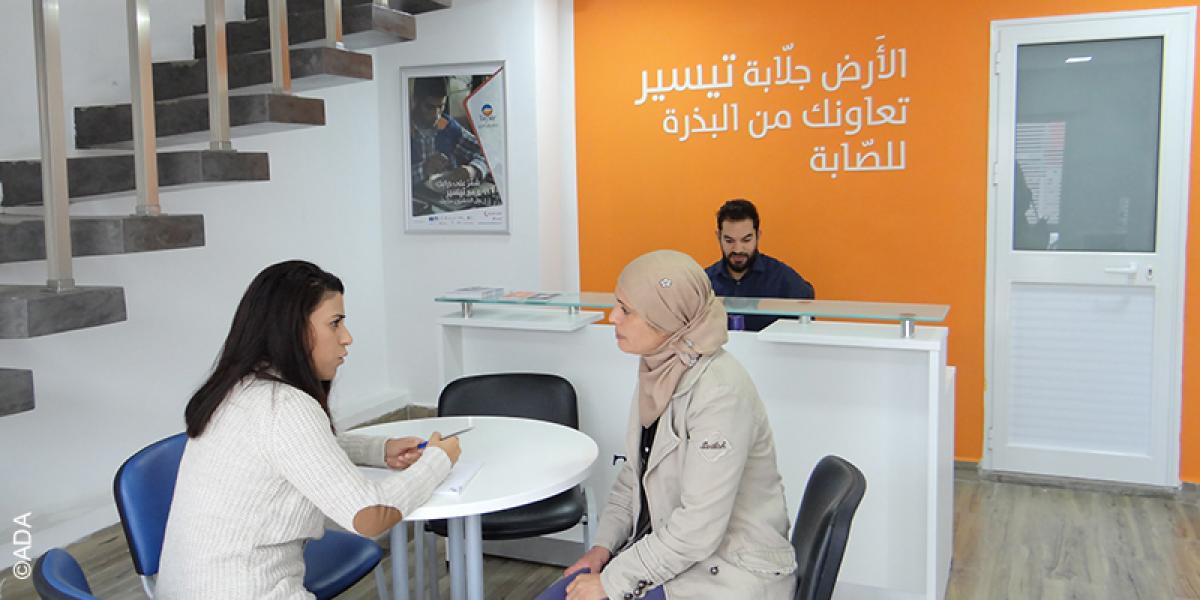Strengthening the sector
Strengthening the microfinance sector

ADA carries out projects designed to develop the inclusive finance sector at the national and regional level. These projects involve all of the actors in the sector, from the governments and regulatory bodies to the representative bodies in the sector, such as microfinance networks and professional associations.
National projects to support the development of inclusive finance
ADA contributes to the implementation of national development programmes in several priority countries of Luxembourg Cooperation, notably with regard to inclusive finance. These programmes are called Indicative Cooperation Programmes (ICP). In particular, ADA is responsible for the “inclusive finance” element of the ICPs in two countries:
-
Niger
ADA has been asked to play a vital role in the implementation of a Luxembourg Cooperation national programme which aims to broaden access to financial services in Niger. This programme is part of the fourth ICP for the 2022-2026 period. For the first time, inclusive finance constitutes an area of intervention in its own right in an ICP and is no longer grouped together with other projects. This is also the largest inclusive finance programme ever signed with a partner country of Luxembourg’s development cooperation, since it has been allocated a budget of 15 million EUR. ADA has four years to implement the project.
For more information
-
Cabo Verde
ADA is responsible for the execution of the part of the fifth IPC (2021-2025) programme dedicated to the development of inclusive finance in Cabo Verde. The aim of this project is to develop the technical and institutional capacities of seven MFIs to enable them to offer financial products tailored to meet with the needs of vulnerable populations and micro and small enterprises. The project will also develop the institutional capacities of Cabo Verde Central Bank, of the Finance Ministry’s Unit for the promotion and development of microfinance (UPDM) and of the professional association of MFIs in order to professionalise the sector and to make it more transparent, resilient and sustainable over the long term. Unlike the project in Niger, this project does not constitute an area of intervention in its own right and instead comes under the “Employment and Employability” pillar. ADA has five years to implement the project.
Furthermore, at the request of the Ministry of Foreign and European Affairs of Luxembourg, a sectoral support programme, which is not related to an IPC, will continue to be implemented in Tunisia:
-
Tunisia
In line with the MicroMed project, ADA continues to support the Tunisian microfinance sector to promote financial inclusion in the country. At the end of 2021, a partnership agreement for a new technical assistance project with a budget of 1.4 million EUR was signed by the Ministry of Foreign and European Affairs of Luxembourg and the Tunisian Ministry of Economic Affairs, Finance and Investment Support, as well as by ADA, which received a mandate to implement the project. The project will run for two and a half years and will focus on the development of financial education, the protection of microfinance clients and improving the conditions under which MFIs operate with the aim of enabling them to offer financial services tailored to meet with the needs of the poorest populations.
For more information
Microfinance Networks and Professional Associations
Networks act as national or regional intermediaries between the MFIs and the public authorities and the regulatory bodies with which they raise the regulatory issues encountered by their members.
The networks also enable ADA to widely disseminate tools and good practices, training and expertise by sharing, for example, with the member MFIs, learnings related to financial transparency, social performance, financial education and the development of green microfinance products.
ADA intends to use this transfer of skills over course of time to create strong and independent regional networks which, one day, will be capable of disseminating their knowledge to all of the stakeholders in an independent manner.
Our network partners throughout the world
-
Central America:
- REDCAMIF, a regional network which brings together the national networks of Guatemala, El Salvador, Honduras, Nicaragua, Costa Rica, Panama and the Dominican Republic.
Find out more about the results of the longstanding collaboration between ADA and REDCAMIF
-
South East Asia:
-
Africa:
IN A NUTSHELL
ADA supports professional microfinance associations and networks since it considers them to be key intermediaries between the governments and the regulators with a view to developing the microfinance sector and to promote inclusive finance in the respective regions.
LATEST NEWS

06 Avril 2023
Deteriorating liquidity and funding conditions for microfinance institutions in Myanmar
A survey of the microfinance sector in Myanmar shines a light on the current difficult operating environment and makes recommendations for policymakers, microfinance institutions (MFIs) and international investors on how to address the challenges.
08 March 2023
ADA supports the financial inclusion of the rural population in Laos
In Laos, ADA promotes financial inclusion for low-income populations through the consolidation and professionalisation of the country's inclusive finance sector.
24 February 2023
The 4th Indicative Cooperation Programme between Niger and Luxembourg is now underway
Indicative Cooperation Programme for 2022–2026 between Luxembourg and Niger was launched in Niamey on 3 February.
30 January 2023
ADA promotes financial inclusion in Benin through financial education
ADA provided training on the basics of inclusive finance and monitored the pilot project with the Ministry until the project drew to a close at the end of 2022.